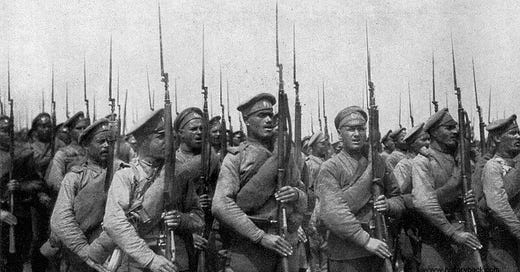The Russia-Ukraine war:What does it have in common with World War I?
Historian Christopher Clark, author of the book "The Sleepwalkers:How Europe Went to War in 1914", spoke to Deutsche Welle about the commonalities of World War I. with the war in Ukraine. "Your book 'The Sleepwalkers' made people rethink whether Germany started World War I, or whether many European states eventually sleepwalked into a major conflict. What was the final conclusion of your project?
SOURCE:DW
Christopher Clark: I think the conclusion of the book around 1914 was that the causes of the war were complex. There was already a debate going on – which has not been concluded – about what caused the war. This is because that story was so complicated. So I guess the book makes a call to recognize the multi-layered connections. That was my first main argument. The second argument was that we should think not only about how wars are started and who is responsible for it. We also need to think about how they are triggered so that next time it doesn't happen again.
Thinking about the current war in Ukraine for example, if we just decide that Mr. Putin is a very bad man and that he caused a war and that was that, then we will learn nothing from this war. We can learn a lot more if we consider the whole story of how we got here. That would in no way limit his responsibility for what happened, that much is indisputable. But it would at least allow us to learn to manage such situations better in the future.
DW:How could we learn from this? What are the parallels between the road leading to World War I and the current situation?
K.K.: In a way we can learn lessons. It's interesting because when the war [in Ukraine] broke out, or at least just before it broke out, the situation reminded me of the one before 1914, because I thought that Putin's plan is to send 200,000 men to the border and then withdraw them having pressured the West or Ukraine itself to make concessions. Then it turned out that he was planning a war in the first place.
The Russia-Ukraine war:What does it have in common with World War I?



